Illumination and belongs to the Gnostic tradition of enlightenment. It
promotes reason and knowledge and is wholly opposed to religions of
faith." and that is something that I can relate to.
Wikipedia write:
Johann Adam Weishaupt (6 February 1748 – 18 November 1830[1][2][3][4]) was a German philosopher and founder of the Order of Illuminati, a secret society with origins in Bavaria. Early life Adam Weishaupt was born on 6 February 1748 in Ingolstadt[1][5] in the Electorate of Bavaria. Weishaupt's father Johann Georg Weishaupt (1717–1753) died[5] when Adam was five years old. After his father's death he came under the tutelage of his godfather Johann Adam Freiherr von Ickstatt[6]who, like his father, was a professor of law at the University of Ingolstadt.[7] Ickstatt was a proponent of the philosophy of Christian Wolff and of theEnlightenment,[8] and he influenced the young Weishaupt with his rationalism. Weishaupt began his formal education at age seven[1] at a Jesuitschool. He later enrolled at the University of Ingolstadt and graduated in 1768[9] at age 20 with a doctorate of law.[10] In 1772[11] he became a professor of law. The following year he married Afra Sausenhofer[12] of Eichstätt. After Pope Clement XIV’s suppression of the Society of Jesus in 1773, Weishaupt became a professor of canon law,[13] a position that was held exclusively by the Jesuits until that time. In 1775 Weishaupt was introduced[14] to the empirical philosophy of Johann Georg Heinrich Feder[15] of theUniversity of Göttingen. Both Feder and Weishaupt would later become opponents of Kantian idealism.[16] Founder of the Illuminati[edit] On May day 1776 Johann Adam Weishaupt founded the "Illuminati" in the Electorate of Bavaria. He adopted the name of "Brother Spartacus" within the order. Although the Order was not egalitarian or democratic internally, it sought to promote the doctrines of equality and freedom throughout society.[17] The actual character of the society was an elaborate network of spies and counter-spies. Each isolated cell of initiates reported to a superior, whom they did not know, a party structure that was effectively adopted by some later groups.[17] Weishaupt was initiated into the Masonic Lodge "Theodor zum guten Rath", at Munich in 1777. His project of "illumination, enlightening the understanding by the sun of reason, which will dispel the clouds of superstition and of prejudice" was an unwelcome reform.[17] Soon however he had developed gnostic mysteries of his own[citation needed], with the goal of "perfecting human nature" through re-education to achieve a communal state with nature, freed of government and organized religion. He began working towards incorporating his system of Illuminism with that of Freemasonry.[17] Weishaupt's radical rationalism and vocabulary was not likely to succeed. Writings that were intercepted in 1784 were interpreted as seditious, and the Society was banned by the government ofKarl Theodor, Elector of Bavaria, in 1784. Weishaupt lost his position at the University of Ingolstadt and fled Bavaria.[17] Activities in exile[edit] He received the assistance of Duke Ernest II of Saxe-Gotha-Altenburg (1745–1804), and lived in Gotha writing a series of works on illuminism, including A Complete History of the Persecutions of the Illuminati in Bavaria (1785), A Picture of Illuminism (1786), An Apology for the Illuminati (1786), and An Improved System of Illuminism (1787). Adam Weishaupt died in Gotha on 18 November 1830.[1][2][3][4] He was survived by his second wife, Anna Maria (née Sausenhofer), and his children Nanette, Charlotte, Ernst, Karl, Eduard, and Alfred.[2] Weishaupt was buried next to his son Wilhelm who preceded him in death in 1802. After Weishaupt's Order of the Illuminati was banned and its members dispersed, it left behind no enduring traces of an influence, not even on its own erstwhile members, who went on in the future to develop in quite different directions.[18] Works[edit] Philosophical works[edit] (1775) De Lapsu Academiarum Commentatio Politica. (1786) Über die Schrecken des Todes – eine philosophische Rede. (French) Discours Philosophique sur les Frayeurs de la Mort (1788). Gallica (1786) Über Materialismus und Idealismus. Torino (1788) Geschichte der Vervollkommnung des menschlichen Geschlechts. (1788) Über die Gründe und Gewißheit der Menschlichen Erkenntniß. (1788) Über die Kantischen Anschauungen und Erscheinungen. (1788) Zweifel über die Kantischen Begriffe von Zeit und Raum. (1793) Über Wahrheit und sittliche Vollkommenheit. (1794) Über die Lehre von den Gründen und Ursachen aller Dinge. (1794) Über die Selbsterkenntnis, ihre Hindernisse und Vorteile. (1797) Über die Zwecke oder Finalursachen. (1802) Über die Hindernisse der baierischen Industrie und Bevölkerung. (1804) Die Leuchte des Diogenes. (English) Diogenes Lamp (Tr. Amelia Gill) introduced by Sir Mark Bruback chosen by the Masonic Book Club to be its published work for 2008. (Ed. Andrew Swanlund). (1817) Über die Staats-Ausgaben und Auflagen. Google Books (1818) Über das Besteuerungs-System. Notes[edit] ^ Jump up to:a b c d Allgemeine Deutsche Biographie Vol. 41, p. 539. ^ Jump up to:a b c Engel, Leopold. Geschichte des Illuminaten-ordens. Berlin: H. Bermühler Verlag, 1906. ^ Jump up to:a b van Dülmen, Richard. Der Geheimbund der Illuminaten. Stuttgart: Frommann-Holzboog, 1975. ^ Jump up to:a b Stauffer, Vernon. New England and the Bavarian Illuminati. Columbia University, 1918. ^ Jump up to:a b Engel 22. Jump up^ Allgemeine Deutsche Biographie Vol. 13, pp. 740–741. Jump up^ Freninger, Franz Xaver, ed. Das Matrikelbuch der Universitaet Ingolstadt-Landshut-München. München: A. Eichleiter, 1872. 31. Jump up^ Hartmann, Peter Claus. Bayerns Weg in die Gegenwart. Regensburg: Pustet, 1989. 262. Also, Bauerreiss, Romuald.Kirchengeschichte Bayerns. Vol. 7. St. Ottilien: EOS Verlag, 1970. 405. Jump up^ Freninger 47. Jump up^ Engel 25–28. Jump up^ Freninger 32. Jump up^ Engel 31. Jump up^ Engel 33. Also, Allgemeine Deutsche Biographie Vol. 41, p. 540. Jump up^ Engel 61–62. Jump up^ Allgemeine Deutsche Biographie Vol. 6, pp. 595–597. Jump up^ Beiser, Frederick C. The Fate of Reason. Harvard University Press, 1987. 186–88. ^ Jump up to:a b c d e Catholic Encyclopedia: Illuminati, sourcing Illuminati papers Jump up^ Dr. Eberhard Weis in Die Weimarer Klassik und ihre Geheimbünde, edited by Professor Walter Müller-Seidel and Professor Wolfgang Riedel, Königshausen und Neumann, 2003, pp. 100-101 External links[edit] Find more about Adam Weishaupt at Wikipedia's sister projects Media from Commons Quotations from Wikiquote (German) Biography in Allgemeine Deutsche Biographie Vol. 41, pp. 539–550 by Daniel Jacoby. A Bavarian Illuminati primer by Trevor W. McKeown. Illuminati entry in The Catholic Encyclopedia, hosted by New Advent.
![kristof Gabriel carina van hooymissen [my ancestor lieven once brewed the beer saint-michael]](https://blogger.googleusercontent.com/img/b/R29vZ2xl/AVvXsEiuf5AId3Z3RVqmJkfVPVXsz_-LO89rYUHadTXsJnXUtENc6Q3DYO4cH6Ii3cJfHvIOyYLuyB4usNk9rXPfKXqGqnUPGe6D30imXQzsKAEvPnR478_6_CpifikjSMW-V0GLBp8BWPUB_B32/s250/Red+PIll.jpg)

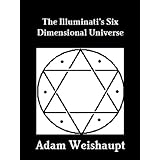

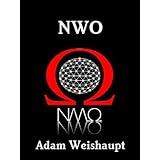
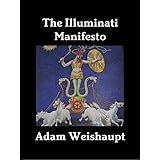



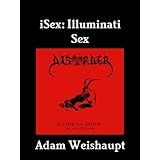

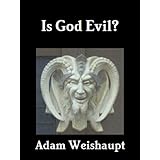
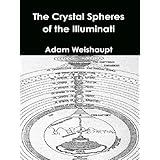
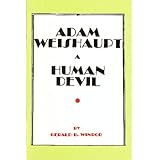


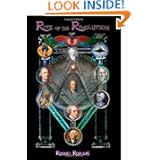
Geen opmerkingen:
Een reactie posten